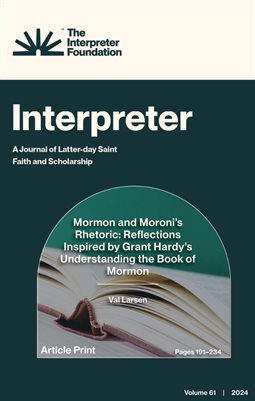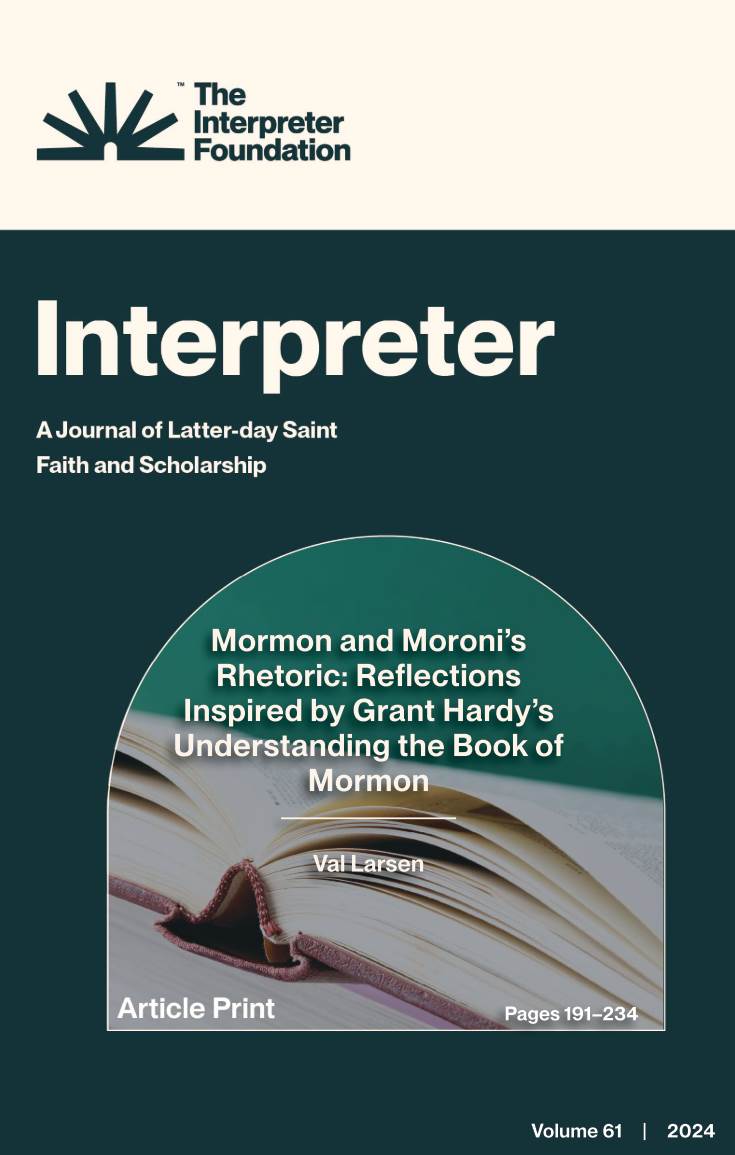

DEBUG




















































Another great way to enjoy this content.
Learn More

Abstract: Grant Hardy has shown that Nephi, Mormon, and Moroni have distinctive personalities, rhetorical strategies, implied readers, and thematic concerns. Mormon lived within history and wrote as a historian. He focused on time, place, person, political, and military matters. I argue Mormon’s historiography was well adapted to the needs of his initial envisioned audience, the Alma family. Moroni, who lived most of his life outside of history, wrote intertextually, in dialog with voices speaking from the dust. And he wrote as a theologian especially attuned to the tragedy of human existence without God. Unlike his father, Moroni was a reluctant and, initially, untrained writer. His initial lack of confidence and competence and his growth as a writer and as a person are apparent in the five different endings for the Book of Mormon that he successively inscribed over the course of his life. This article critiques Hardy’s assessment of Mormon’s and extends his account of Moroni’s rhetorical effectiveness.












Email sharing only available when logged in.
Log In or Sign Up now.
Choose a size:
Copy Code: